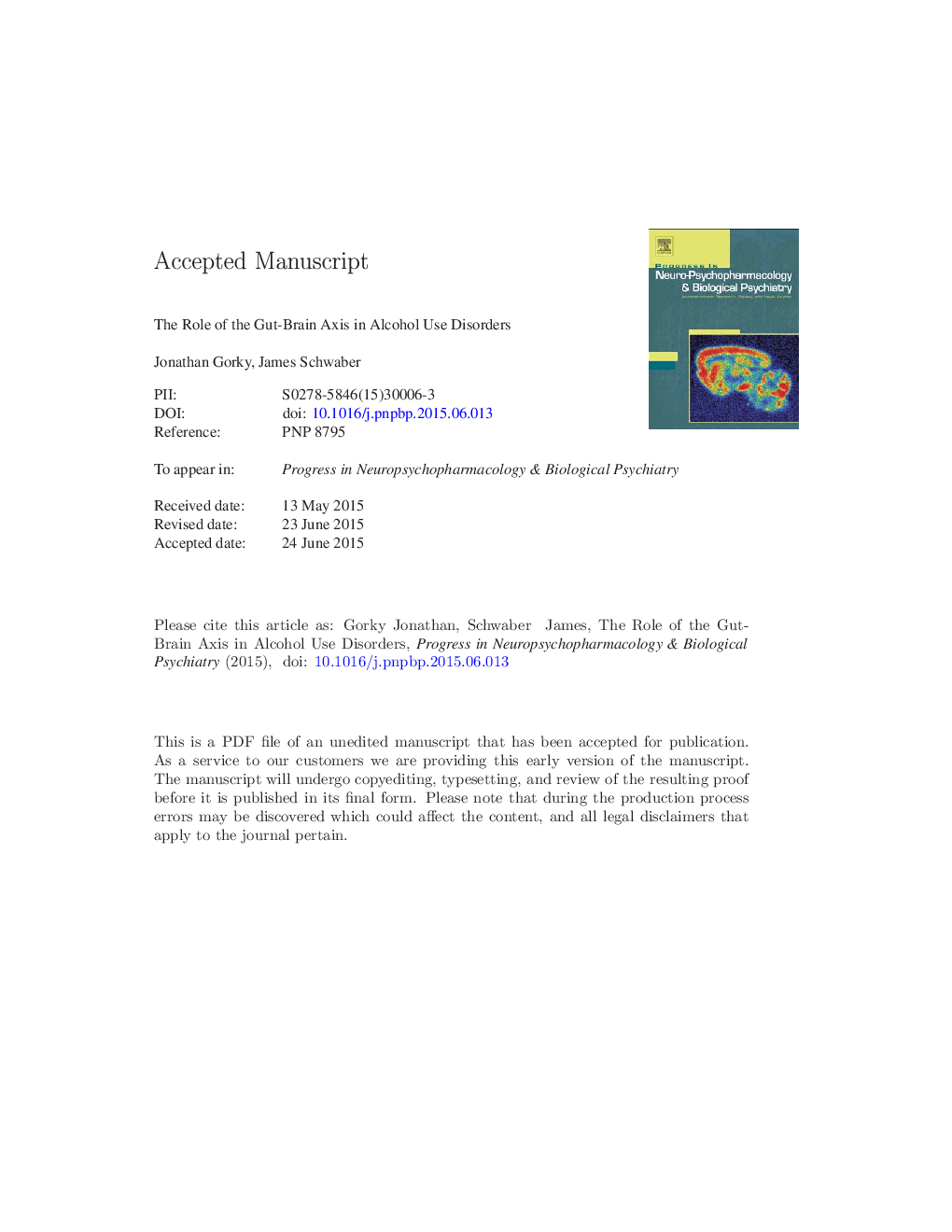| Article ID | Journal | Published Year | Pages | File Type |
|---|---|---|---|---|
| 5844231 | Progress in Neuro-Psychopharmacology and Biological Psychiatry | 2016 | 17 Pages |
Abstract
Neuroimmune and inflammatory processes have been locally associated with the amygdala in alcohol exposure and withdrawal. We and others have suggested that this inflammation in the amygdala may cause disturbance of neural function observed as anxiety and autonomic distress in withdrawal. Despite the potential importance of the robust neuroinflammatory response, the mechanisms contributing to this response are not well understood. We review literature that suggests the effects of alcohol, and other substances of abuse, cause dysbiosis of the gut microbiome. This peripheral response may modulate neuroprotective vagal afferent signaling that permits and exacerbates a neuroinflammatory response in the amygdala. We will examine the mounting evidence that suggests that (1) gut dysbiosis contributes to neuroinflammation, especially in the context of alcohol exposure and withdrawal, (2) the neuroinflammation in the amygdala involves the microglia and astrocytes and their effect on neural cells, and (3) amygdala neuroinflammation itself contributes directly to withdrawal behavior and symptoms. The contribution of the gut to an anxiogenic response is a promising therapeutic target for patients suffering with withdrawal symptoms given the safe and well-established methods of modulating the gut microbiome.
Keywords
LPSSSRIsNTSGLPenteroendocrineCCKCRFSUDSIPANCeASubstance use disorderSubstance use disordersgamma amino butyric acidNeuroinflammationenterochromaffinWithdrawalSUDcorticotropin releasing factorvagus nervelipopolysaccharidegut–brain axisselective serotonin reuptake inhibitorsgut microbiomenorepinephrinenucleus tractus solitariuscentral nucleus of the amygdalacholecystokininGABA
Related Topics
Life Sciences
Neuroscience
Biological Psychiatry
Authors
Jonathan Gorky, James Schwaber,
